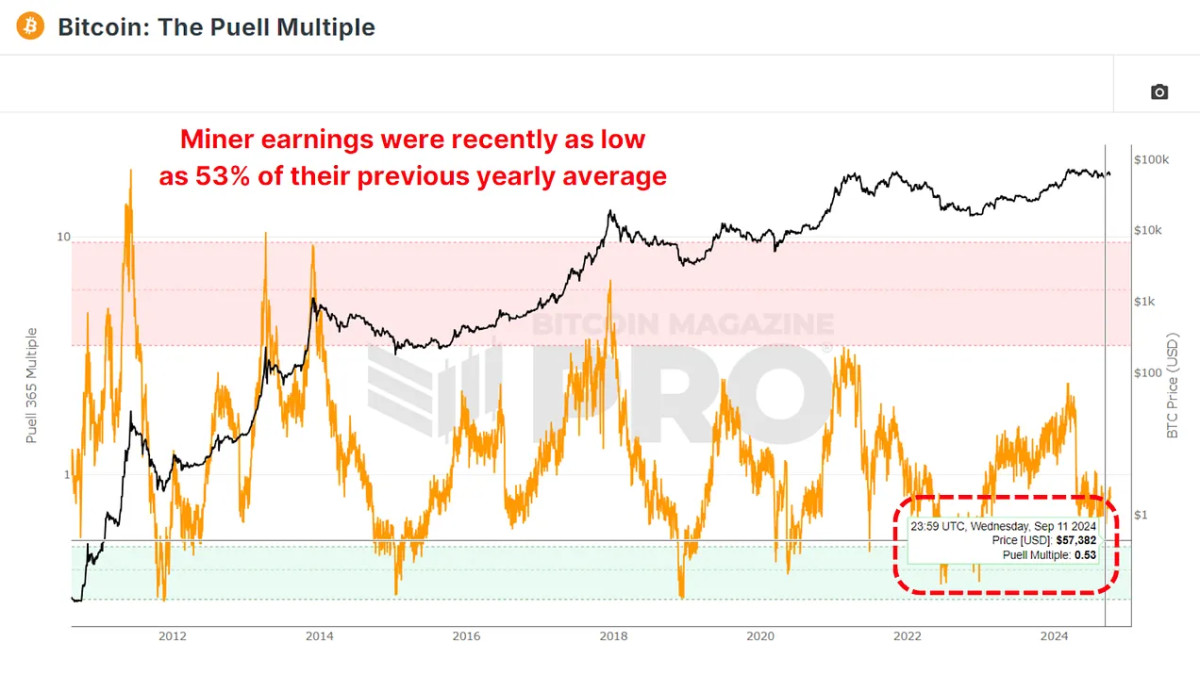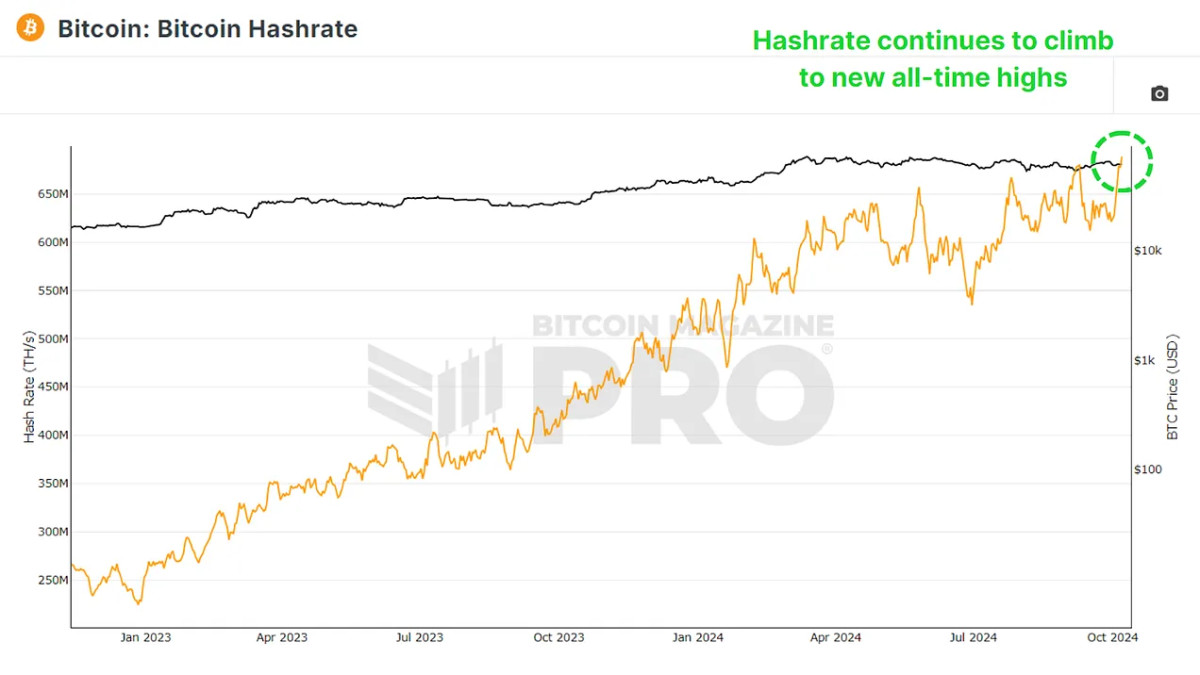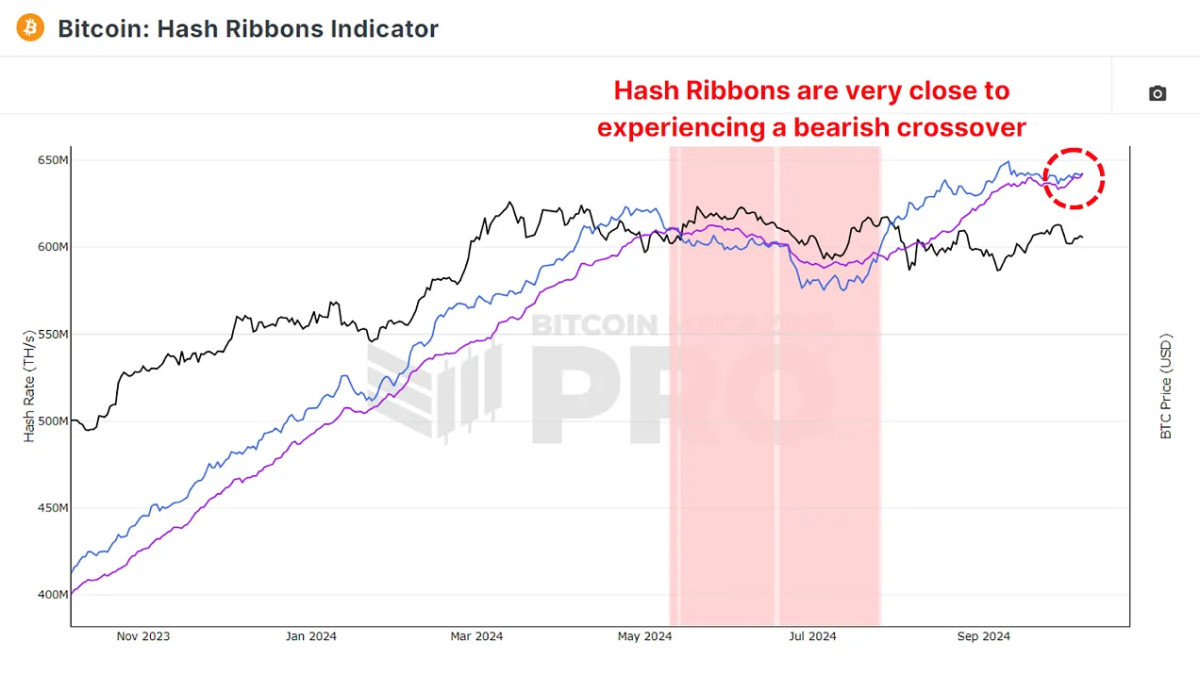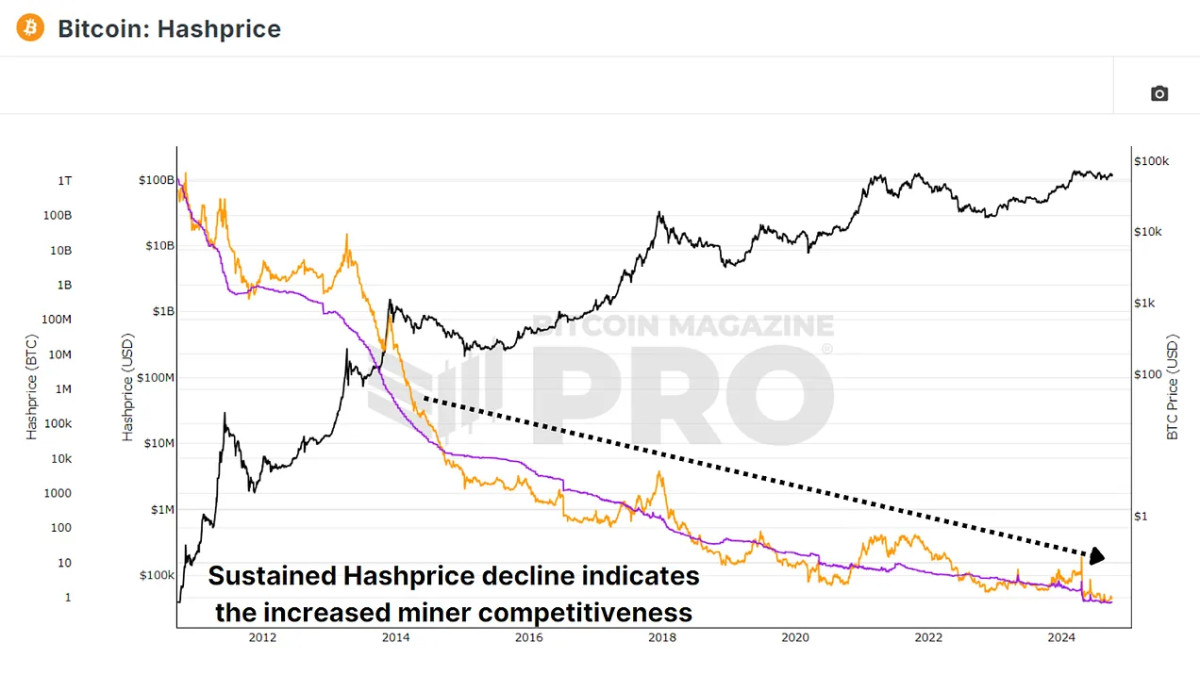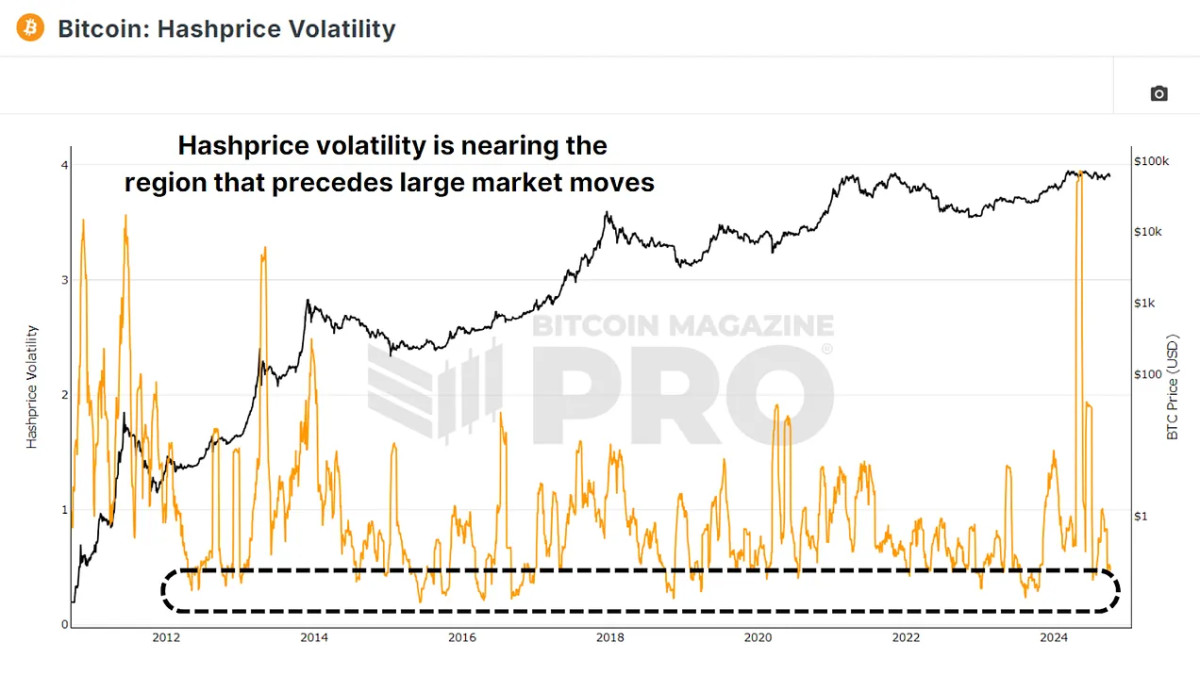Bitcoin miners have always been a reliable indicator of the overall sentiment within the market. By tracking their earnings and actions, we can get a sense of where the price of BTC might head next. In this article, we’ll explore the latest trends in Bitcoin mining, how miners are reacting to current market conditions, and what we can learn from key indicators to gauge how Bitcoin miners are positioning themselves for the coming weeks and months.
State of Miner Earnings
One of the best ways to assess Bitcoin miner sentiment is to examine their earnings in relation to historical data. This can be done using The Puell Multiple, which measures current miner earnings against the yearly average from the previous year.
As of the latest data, the Puell Multiple is hovering around 0.8, meaning miners are earning 80% of what they were making on average over the past year. This is a marked improvement from a few weeks ago when the multiple was as low as 0.53, indicating miners were earning just over half of their previous year’s average.
This significant drop earlier in the year likely put financial pressure on many miners. However, despite these challenges, the fact that the Puell Multiple is recovering suggests that the outlook for miners might be improving.
Hashrate and Network Growth
Even though earnings are down, there are no signs of miners leaving the network. In fact, Bitcoin’s hashrate, which is the total computational power used to secure the network, has been steadily increasing. This surge in hashrate indicates that more miners are entering the network or existing miners are upgrading their equipment to compete for block rewards.
However, looking at the Hash Ribbons Indicator, which tracks the 30-day (blue line) and 60-day (purple line) moving averages of Bitcoin’s hashrate, these two averages have been getting closer to crossing, which could potentially indicate a bearish outlook for the short term. When the 60-day average rises above the 30-day average, it historically points to miner capitulation, a time when miners, under financial stress, shut off their equipment.
Until we see a bearish crossover, there’s no immediate sign of bearishness. One positive is that every time this happens, it has been followed by a period of accumulation, which typically precedes a rise in Bitcoin prices. Investors often consider these capitulation periods great opportunities to buy BTC at lower prices.
How Much Are Miners Making?
While we’ve discussed miner earnings in relation to Bitcoin’s price, another important factor is the Hashprice, the amount of BTC or USD miners can earn for each terahash (TH/s) of computational power they contribute to the network.
Currently, miners earn approximately 0.73 BTC per terahash, or about $45,000 in USD terms. This amount has been steadily decreasing in the months following the latest Bitcoin halving event, where miners’ block rewards were cut in half, reducing their profitability. Despite these challenges, miners are still increasing their hashrate, which suggests they’re betting on future BTC price appreciation to compensate for their lower earnings.
One of the most interesting metrics to watch is the Hashprice Volatility, which tracks how stable or volatile miner earnings are over time. Historically, periods of low hashprice volatility have preceded significant price movements for Bitcoin. As of the latest data, hashprice volatility has begun to drop again, suggesting we could be nearing a period of substantial price movement for Bitcoin.
Conclusion
Bitcoin miner earnings are down compared to a historical average post-halving, but they’re recovering from a recent significant low. Bitcoin’s hashrate is still climbing; meaning miners are pouring more computational power into the network despite lower profitability. The hashprice continues to drop, but miners remain optimistic, likely due to expected future price appreciation. Hashprice volatility is falling, historically indicating that a large move in BTC’s price could be imminent.
Bitcoin miners seem to be bullish about the long-term potential of BTC, despite current challenges. If current metric trends hold, we could be on the verge of a significant price movement, with most indications pointing towards a positive outlook.
For a more in-depth look into this topic, check out a recent YouTube video here:
What Do Bitcoin Miners Expect Next?
